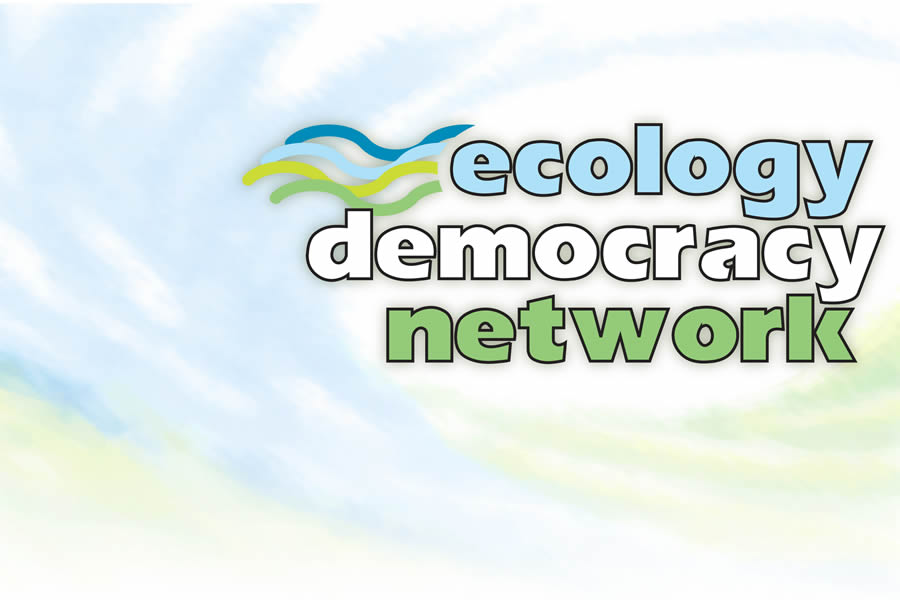
Politics The Midwest Way!
The Ecology Democracy Network was started by Ken Pentel in 2008 to create a new pro-active way of doing politics that will care for our collective home, Earth. The network is young, but growing quickly - take a look around to see what you think, and get involved!ISSUES - Publicly Funded Elections
Dan Weeks from ACR (Americans for Campaign Reform) 2009:
Dan mentioned two key points. First, when someone is deciding whether or not to run for office the first question they ask themselves is, "do I have enough money or can I raise enough money to run?" As a result, money becomes a barrier to entry into the political process. Second, 1/10th of 1% (0.1%) of the population provides 3/4 (75%) of the money that's used to fund political campaigns. That gives a very small, wealthy minority of the population a very large majority of the power in determining who runs, who wins, and how issues are addressed.
Overall about 4% of the public gives money to parties and candidates, or another way to look at is:
Elected Public officials spend time focusing on a tiny group of people to raise money from. The wealthy generally shape policy because they hold the purse strings.
This central money has to be removed. We can expand the Minnesota Public funding system to cover all Minnesota elections so our public officials can solve problems for the common good and not chase the money from the few.
The MN Public Finance System—last I read, 98% of the candidates running for state office use the MN public finance system, and almost 100% of those elected used it. We could then just expand the existing system to 100% of public financing. So, if you get enough signatures or votes you get on the ballot. This would include an increase of money to parties, too.—Implementation 2 years.